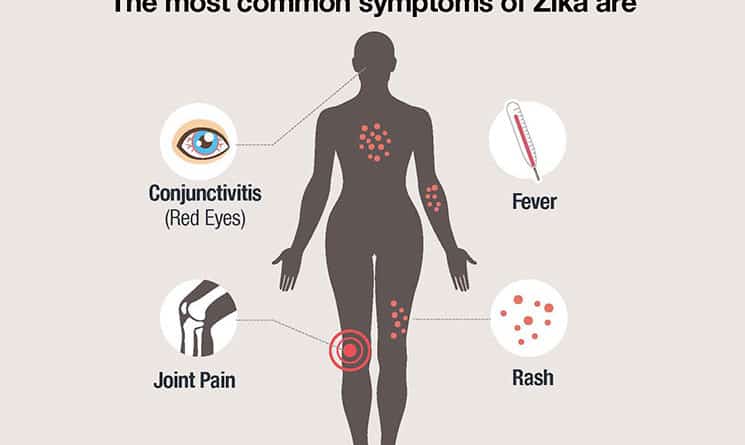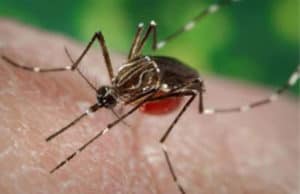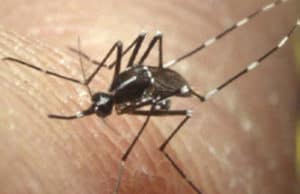The Bureau of Infectious Disease Control recently announced that the number of New Hampshire patients infected with the Zika virus has risen to four. There are now more than 600 cases in the United States.
While the Zika virus may sound new, it has been around for a long time. The first cases were recorded in Africa, Southeast Asia, and the Pacific Islands as early as 1952. The illness is usually mild, only lasts a matter of days, and resembles so many other common ailments that many cases have probably gone unreported for quite some time.
It is no surprise, then, that this virus has been able to quietly travel around Africa and Southeast Asia for decades. That is, until now.
History and spread
In 2007, the first Zika virus outbreak outside of Africa and Asia was reported on Yap Island in the western Pacific Ocean. By 2015, there were several more outbreaks, including a large one in French Polynesia. In January of 2016, the World Health Organizations’ director general, Margaret Chan, warned of the virus spreading across the Americas.
Immunity plays a large role in how fast a virus spreads. The introduction of the Zika virus into a new, previously unexposed population was enough to create large outbreaks across the tropics. In addition, the rainy season between January and May created the perfect habitat for mosquitos carrying the virus. While there are many different types of mosquitos in the world, Zika likes to travel with mosquitos from the Aedes genus, which are common in tropical zones. The Centers for Disease Control and Prevention (CDC) has warned travelers to protect themselves from mosquito bites while traveling in infected zones that include Mexico, the Caribbean, Central America, the Pacific Islands, and South America.
The recent outbreaks have led to a troubling discovery. In Brazil, researchers started to notice a link between Zika infection of pregnant women and microcephaly in newborns. The microcephaly cases seemed to spike in unison with Zika infections. This discovery changed how clinicians thought about Zika. It was no longer a virus that you barely noticed.
“People thought it was a mild illness, but then we found that pregnant women being infected have risks to their fetuses,” said Dr. Benjamin Chan, New Hampshire’s state epidemiologist.
Microcephaly is typically a rare neurological condition in which an infant’s head is significantly smaller than the national average of a particular age. Infants with microcephaly can have a whole host of developmental issues that can affect their vision, speech, learning, motor skills, and appearance. There are a few genetic causes of microcephaly, but up until now, there was no indication that a virus could be linked to the condition.
The spread of the Zika virus through Brazil and the recent findings concerning birth defects prompted U.S. Sen. Jeanne Shaheen of New Hampshire to request that the World Health Organization evaluate the public health risk of holding the 2016 summer Olympic Games in Brazil. The World Health Organization’s Zika Emergency Committee is now evaluating the risks of such an event, given the nature of the current epidemic.
“The Olympic Games draw athletes and spectators from every corner of the globe and it’s important that we understand the health implications,” Shaheen said after receiving Dr. Margaret Chan’s letter notifying her of the evaluation.
Education and protection
Shaheen has also heard from New Hampshire health officials in Concord about the need for resources to combat Zika. Those efforts are for patient testing, education, and mosquito control.
Between Jan. 11 and June 2, 201 people in the state were tested for Zika. Out of the four positive patients, two of them are pregnant women, one is a non-pregnant woman, and one is a male. Authorities have not disclosed where in the state the infected patients live.
Three out of the four contracted the virus through a mosquito bite while traveling outside of New Hampshire. The other became infected by sexual transmission from an infected partner. The potential of sexual transmission and the greater risk to pregnant women require more education to keep the public notified and help reduce exposure to Zika.
There are also concerns about mosquito migration. Two species of Zika-carrying mosquitos are being watched.
“The Aedes aegypti mosquito is primarily down south, but the Aedes albopictus, comes closer to where we live,” explained Dr. Benjamin Chan. “It hasn’t gotten to (New Hampshire) yet. The home range can change. The state will do extra surveillance to make sure they can identify it if it shows up.”
To ease the burden of the spread of mosquitos, it’s important to reduce areas of standing water where mosquitos breed. The potential for Aedes albopictus migrating north is still in the future. But the need to protect yourself against a Zika infection is a major concern while traveling in infected areas now.
“There is the risk of sexual transmission, but the main way is still through the bite of the mosquito,” Chan said. “No matter how you contract it, pregnant women need to be aware and prevent against getting this infection. The CDC is monitoring travelers that contract Zika and monitoring their health so we will have more information over time. This is a relatively new finding, the birth defects being caused by Zika. We know there is an association and a number of different outcomes, but we don’t know the individual’s risk.”
In fact, it isn’t just Zika. There are a number of infections one can get from traveling to tropical regions, including dengue and chikungunya, which causes debilitating joint pain. Protection from mosquito bites is always a good idea. If you will be traveling to tropical regions, check the CDC’s website for updated travel warnings. Mosquitoes in the Aedes family tend to bite during



